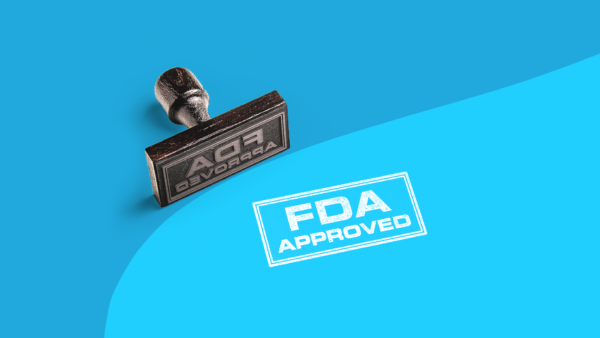Nerve pain, also known as neuropathic pain, is a type of pain that results from nerve damage to your nervous system, which includes your brain, spinal cord, and peripheral nerves. Nerve pain in the peripheral nerves is termed neuralgia and can result from bodily injury or from peripheral neuropathy due to an illness such as HIV or shingles or a medical condition like diabetes. Whatever the cause, nerve pain can be uncomfortable and disruptive.
“As a pain management doctor, I see the debilitating effects of nerve pain firsthand,” says Sean Ormond, MD, anesthesiologist and interventional pain management specialist at Atlas Pain Specialists in Glendale, Arizona. “Its burning, tingling, and shooting sensations can significantly impact everyday life.”
Thankfully, nerve pain medication can provide some much-needed relief. “Choosing the right medication depends on the specific type and cause of your pain,” Dr. Ormond explains. Here, we outline the prescription and over-the-counter (OTC) nerve pain medication options, alternative and complementary treatments, and other expert tips for relieving nerve pain.
5 prescription medications for nerve pain
There are several different types of prescription medications for nerve pain. Your healthcare provider will determine the best nerve pain medication for you based on the type of nerve pain you are experiencing, as well as any underlying medical conditions you may have.
“The most commonly prescribed medications for nerve pain fall into two classes: anticonvulsants and antidepressants,” explains Gendai Echezona, MD, a triple board-certified anesthesiologist specializing in interventional pain management and the proprietor of Premier Pain Care & Wellness in Norwalk, Connecticut. These are usually the first-line medication types prescribed for nerve pain. Other medication types may be prescribed, too.
However, there is one medication that isn’t usually prescribed for nerve pain, contrary to popular belief. “It’s worth noting that muscle relaxants aren’t typically prescribed for nerve pain, although patients with nerve pain may experience associated muscle spasms,” Dr. Echezona says.
These are the different prescription nerve pain options.
1. Tricyclic antidepressants (TCAs)
Tricyclic antidepressants (TCAs) are among the medications most commonly prescribed for nerve pain, says Dr. Ormond. “Amitriptyline, nortriptyline, and desipramine are often the first line of defense for nerve pain, especially neuropathic pain due to diabetic neuropathy, post-herpetic neuralgia, and chronic back pain,” he says.
TCAs have been widely researched as a treatment for nerve pain and are considered a mainstay of treatment. They work by inhibiting the reuptake of serotonin and norepinephrine in varying degrees, depending on which specific medication is used. Side effects can include dizziness, constipation, and dry mouth. People with heart disease and epilepsy may not be able to take TCAs.
2. Serotonin-norepinephrine reuptake inhibitors (SNRIs)
Serotonin-norepinephrine reuptake inhibitors (SNRIs) are a class of antidepressants that have shown efficacy in treating nerve pain, including low back pain and fibromyalgia. “Cymbalta (duloxetine) and Effexor (venlafaxine) can be effective for various neuropathic pain types, including those associated with depression and anxiety,” Dr. Ormand says.
SNRIs are often easier to tolerate and have fewer side effects than TCAs, making them a better choice for some people. Still, they are not without side effects, which can include insomnia, constipation, nausea, and dry mouth.
3. Anticonvulsants
Though initially designed to treat seizures, medications like Neurontin (gabapentin) or Lyrica (pregabalin) are often prescribed to treat nerve pain. “While any of these may be used as a first line of treatment, gabapentin is often the most common,” Dr. Echezona explains. Other options include Tegretol (carbamazepine) and Trileptal (oxcarbazepine). These are older options and can be used for specific types of nerve pain, like trigeminal neuralgia.
Anticonvulsants aren’t without side effects, which may include drowsiness, upset stomach, blurred vision, and dizziness. Anticonvulsants may interact with other medications, so it’s important to tell your healthcare provider about all medications you use, including anything OTC.
4. Corticosteroids
Sometimes your healthcare provider will offer you corticosteroid treatment for nerve pain. “Injections or oral steroids can help reduce inflammation in specific cases of nerve pain, like spinal stenosis,” Dr. Ormond says. Oral corticosteroid medications used to treat nerve pain include dexamethasone and prednisone. In particular, cortisone shots are often used for this purpose. These shots offer temporary relief and are used after trying the first-line medication treatments listed above. Side effects are rare with cortisone shots but include a small risk of infection at the site of the shot.
5. Opioids
Opioids are sometimes recommended for nerve pain, but only as a fifth-line choice, according to one treatment algorithm. This is mainly because of their potential for adverse effects. “While effective for severe pain, they carry the potential for addiction and side effects, requiring careful monitoring and limited use for nerve pain,” Dr. Ormond says.
4 OTC nerve pain medications
Sometimes you need pain relievers and you can’t wait for a visit to your healthcare provider. Or maybe you are looking for a remedy you can use alongside your current treatment plan. Let’s take a look at some over-the-counter medications for nerve pain.
1. Acetaminophen or NSAIDs
“Over-the-counter options for nerve pain relief often begin with acetaminophen or nonsteroidal anti-inflammatory drugs (NSAIDs),” Dr. Echezona says. This includes well-known painkillers like Tylenol and Advil (ibuprofen). “However, these medications aren’t specifically designed for nerve pain,” Dr. Echezona warns. You should contact your healthcare provider before taking these analgesics if you are taking other prescribed medications for nerve pain.
2. Lidocaine patches
Over-the-counter lidocaine comes in the form of topical patches and creams, which are applied to the skin and can help numb the area where you are experiencing nerve pain. As Dr. Ormond describes it, “topical lidocaine patches and creams offer targeted relief for localized nerve pain.” Brands include Lidocare, Salonpas, and Aspercreme. Side effects can include burning, swelling, redness, or discomfort in the area where lidocaine was applied.
3. Capsaicin cream
Could a substance found in hot peppers be the ticket to nerve pain relief? “Capsaicin cream, derived from chili peppers, can provide temporary nerve pain relief,” says Dr. Ormond, noting that burning sensations are a common side effect of this remedy. Capsaicin works directly on the nerve cells in the skin that are linked to pain sensations, reducing their activity and decreasing pain as a result. Capsaicin cream comes in the form of an ointment, gel, cream, or oil and should be used sparingly and according to instructions. Always contact a provider before using this remedy, and use gloves when applying capsaicin.
4. Vitamins and supplements
Certain vitamins and supplements may be helpful for nerve pain, says Dr. Echezona. “Some individuals consider B vitamins, alpha-lipoic acid, vitamin D (if deficient), magnesium, or CBD to help manage nerve pain,” she says. Vitamins, herbs, and dietary supplements aren’t regulated by the Food & Drug Administration (FDA) and many are not proven to treat medical conditions. You should touch base with your healthcare provider or pharmacist before adding a vitamin or supplement to your care plan. Make sure to share a list of any other medications you are taking, as some medications can interact with vitamins and supplements.
Tips for taking nerve pain medications
“It is crucial to take nerve pain medication under the guidance of a physician,” Dr. Echezona says. She recommends reporting all current medications you’re taking to your healthcare provider, as there sometimes can be drug interactions and side effects.
When starting a new medication, you should begin slowly and carefully, noting how you feel and any potential effects. “Typically, patients start with a low dose and titrate up gradually,” Dr. Echezona explains. “When discontinuing the medication, a slow titration is also recommended.”
Side effects will vary from one medication to another, and it’s best to discuss any potential side effects with your healthcare provider so that you can manage expectations. Finding the medication and dosage that works best for you with minimal adverse effects can take some time.
“Treatment often involves a combination of therapies, tailoring them to your specific needs and response,” Dr. Ormond explains. “Be patient. Finding the right medication and dosage can take time and trial-and-error adjustments.”
Other treatment options for nerve pain
Sometimes alternative and complementary treatments work well for nerve pain. These treatments can work independently but are usually best used in conjunction with other treatments recommended by your healthcare provider.
According to Dr. Echezona, non-medication treatments for nerve pain include:
- Lifestyle modifications, such as addressing weight, nutrition, sleep, and stress
- Transcutaneous electrical stimulation, which can disrupt pain signals
- Acupuncture, yoga, and Tai Chi, which may reduce inflammation and muscle tension and mitigate stress responses to pain
- Cognitive behavioral therapy (CBT), which can help manage the emotional and psychological impacts of pain
“The recommendation of specific treatments depends on individual patient needs,” Dr. Echezona says. “I have recommended all of these treatments at some point for the right patient.”
Nerve pain can be extremely uncomfortable and can negatively impact your daily life and well-being. But there’s hope. Prescription medications, over-the-counter options, and alternative treatments can be used separately or in combination to help manage your nerve pain.
Make sure to contact your healthcare provider to find the nerve pain treatment plan that’s best for you. “With the right approach and support, managing nerve pain and reclaiming your quality of life is possible,” Dr. Ormond says.
Sources
- Neuropathic pain, Cleveland Clinic (2023)
- Peripheral neuropathy, MedlinePlus (2022)
- Pharmacotherapy for neuropathic pain: A review, Pain and Therapy (2017)
- Tricyclic antidepressants, Cleveland Clinic (2023)
- A look at commonly utilized serotonin noradrenaline reuptake inhibitors (SNRIs) in chronic pain, Health Psychology Research (2022)
- General side effects and challenges associated with anti-epilepsy medication: A review of related literature, African Journal of Primary Health Care and Family Medicine (2020)
- A comprehensive algorithm for management of neuropathic pain, Pain Medicine (2019)
- Back pain: What you can expect from steroid injections, Harvard Health Publishing (2020)
- Lidocaine transdermal patch, MedlinePlus (2021)
- Facts about dietary supplements, FDA (2023)











